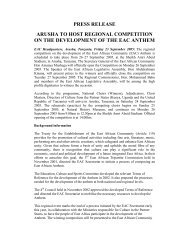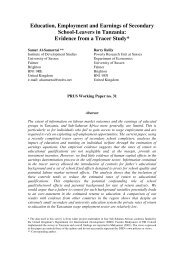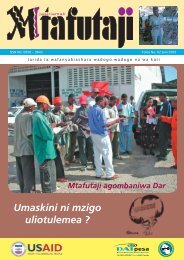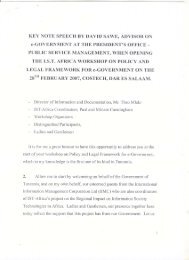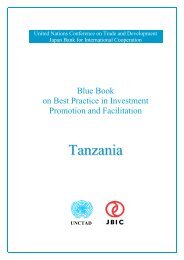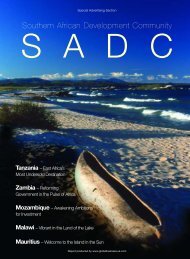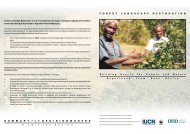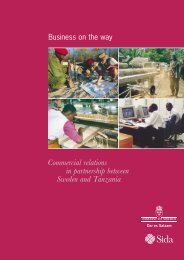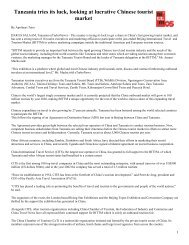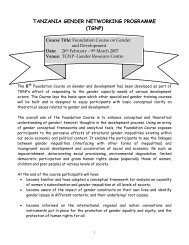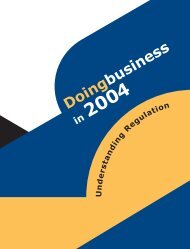Designing e-Government for the Poor - Tanzania Development ...
Designing e-Government for the Poor - Tanzania Development ...
Designing e-Government for the Poor - Tanzania Development ...
Create successful ePaper yourself
Turn your PDF publications into a flip-book with our unique Google optimized e-Paper software.
Annex I: Workshop Agenda<br />
• Sell in<strong>for</strong>mation about business opportunities<br />
• Charge <strong>for</strong> issue of certificates such as birth and marriage<br />
Group 3<br />
Rapporteur: Mr. Santisouk Simmalavong<br />
• Advertising<br />
• Service fee to be charged <strong>for</strong> G2C transaction, and G2B transaction,<br />
but subsidized <strong>for</strong> poor<br />
• Service provider contributes in <strong>for</strong>m of rebate<br />
• Local government shares cost of maintenance and start up costs<br />
• Selling items online<br />
• Private company sponsorship<br />
Group 4<br />
Rapporteur: Mr. Surya Prasad Acharya<br />
• Service charge such as <strong>for</strong> photocopy and e-mail<br />
• Registration fee<br />
• Advertisement<br />
• Budget support from local government<br />
• Private company sponsorship<br />
Mr. Lee suggested utility computing as ano<strong>the</strong>r mean to financially<br />
sustain a portal. Mr. Kushner said that utility computing is a popular and<br />
efficient method, however, <strong>the</strong> procurement guidelines set <strong>for</strong>th by donor<br />
agencies are often inadequate <strong>for</strong> <strong>the</strong> private sector. Mr. Wescott said that<br />
ADB is currently considering using project funds <strong>for</strong> operation and maintenance,<br />
but that this was a risky method. He suggested that a better model<br />
<strong>for</strong> financing is private-public partnership such as share and savings scheme<br />
in which a private company invests and provides funding <strong>for</strong> maintenance<br />
and technical expertise. Mr. Hwangbo said that in <strong>the</strong> case of <strong>the</strong> Republic<br />
of Korea’s smart card system, private-government partnership has proved to<br />
be effective. Mr. Gunawardena said that people, especially <strong>the</strong> poor, recognize<br />
<strong>the</strong> usefulness of ICT services so that utility computing can be<br />
feasible.<br />
73



